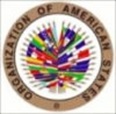
 El 24 de enero de 2010 publiqué en el FORO PARTICIPATIVO de esta revista digital un mensaje en inglés titulado "The Paradox of the US Supreme Court ruling on Electoral Spending Limits", que los lectores interesados pueden leer aquí:
El 24 de enero de 2010 publiqué en el FORO PARTICIPATIVO de esta revista digital un mensaje en inglés titulado "The Paradox of the US Supreme Court ruling on Electoral Spending Limits", que los lectores interesados pueden leer aquí:
https://democraciaparticipativa.net/forum.
Han pasado más de 15 años desde que levanté la voz de alarma desde esas páginas sobre esta decisión de la Corte Suprema de EE.UU. en el caso Citizens United vs la Comisión Federal de Elecciones (Citizens United v. Federal Election Commission), que otorgó a grandes empresas, corporaciones y sindicatos los mismos derechos que otorga la Primera Enmienda a los individuos, lo que les permite gastar cantidades ilimitadas de dinero en campañas políticas. La decisión efectivamente eliminó las restricciones sobre el gasto político independiente por parte de estas entidades.
Expresé entonces mi alarma porque: "La decisión es un cambio doctrinal drástico que permitirá consecuencias de gran alcance por la intromisión corporativa en las decisiones políticas." Una intromisión que ha llegado a ser abrumadora.
- Hits: 320

 There are days when watching the news feels unbearable. Russia’s war of aggression against Ukraine rages on with no end in sight. Diplomatic efforts falter, and the violence continues to escalate by day and by night. Meanwhile, the armed conflict between Iran and Israel — with U.S. involvement — is raising not only international alarm but also critical legal questions. What still counts as self-defence? When does it become an illegal war of aggression? Or have these questions lost their relevance altogether in 2025?
There are days when watching the news feels unbearable. Russia’s war of aggression against Ukraine rages on with no end in sight. Diplomatic efforts falter, and the violence continues to escalate by day and by night. Meanwhile, the armed conflict between Iran and Israel — with U.S. involvement — is raising not only international alarm but also critical legal questions. What still counts as self-defence? When does it become an illegal war of aggression? Or have these questions lost their relevance altogether in 2025?
 The Organization of American States (OAS), the most important regional organization created with the objective “to be a political forum for peace-keeping, security, and the promotion and defense of democracy and human rights,” is now confronted with an existential crisis of either fulfilling its objectives and principles in defense of democracy and human rights, or disappear.
The Organization of American States (OAS), the most important regional organization created with the objective “to be a political forum for peace-keeping, security, and the promotion and defense of democracy and human rights,” is now confronted with an existential crisis of either fulfilling its objectives and principles in defense of democracy and human rights, or disappear.
 La palabra política tiene su origen en el término griego politeia, empleado fundamentalmente por Platón y Aristóteles y que deriva, a su vez, de la palabra polis que significa ciudad-Estado. Guarda relación, además, con los derechos de los ciudadanos y con la forma de gobierno.
La palabra política tiene su origen en el término griego politeia, empleado fundamentalmente por Platón y Aristóteles y que deriva, a su vez, de la palabra polis que significa ciudad-Estado. Guarda relación, además, con los derechos de los ciudadanos y con la forma de gobierno.
 Muchos cónclaves han sorprendido al mundo y a la Iglesia, como el que eligió al Cardenal Angelo Giuseppe Roncalli (Juan XXIII). Otros no tanto; a ningún vaticanista sorprendió que eligiesen al Cardenal Eugenio Pacelli (Pío XII) o al Cardenal Giovanni Montini (Pablo VI).
Muchos cónclaves han sorprendido al mundo y a la Iglesia, como el que eligió al Cardenal Angelo Giuseppe Roncalli (Juan XXIII). Otros no tanto; a ningún vaticanista sorprendió que eligiesen al Cardenal Eugenio Pacelli (Pío XII) o al Cardenal Giovanni Montini (Pablo VI).